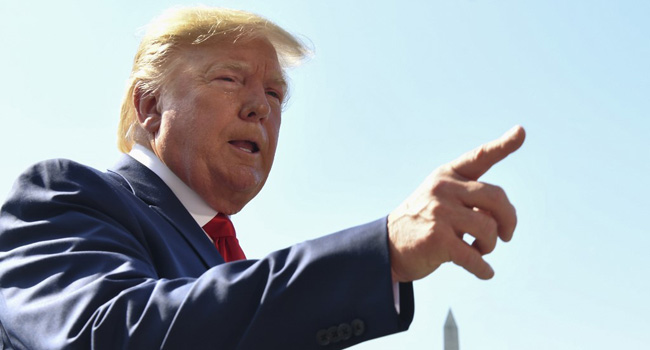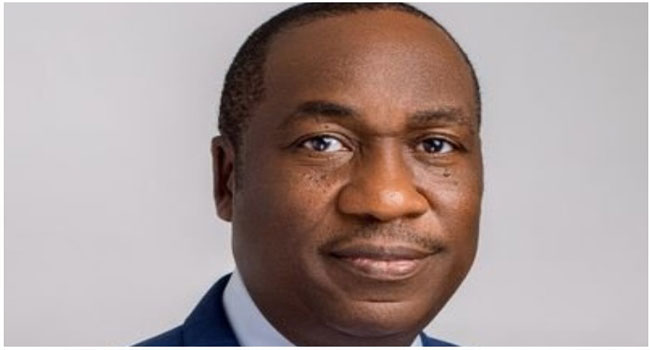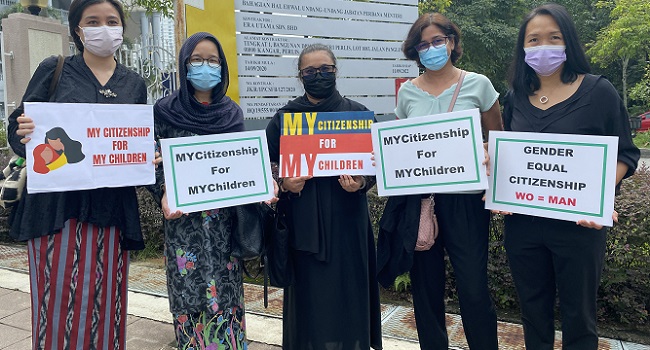
The administration of US President Donald Trump announced Monday new rules that aim to deny permanent residency and citizenship to migrants who receive food stamps, Medicaid and other public welfare.
The change threatens to set back the citizenship hopes of millions of mostly Hispanic migrants who work for low wages and depend in part on public services to get by.
It also appeared to close the door for impoverished and low-skilled migrants outside the country hoping to legally obtain a foothold in the United States.
Announcing a new definition of the longstanding “public charge” law, the White House said hopeful migrants will not be granted resident visas if they are likely to need public assistance.
In addition, those already here and using public services will not be able to obtain green cards or US citizenship.
“To protect benefits for American citizens, immigrants must be financially self-sufficient,” Trump said in a White House statement.
Rules could impact millions
The ruling could impact many of the 22 million non-citizen legal residents of the country, and the estimated 10.5 million unauthorised immigrants, most long-term residents in both groups.
It immediately was thrown into question by pro-migrant activists planning to sue and from Democrats in Congress who said they would fight it.
“This administration scapegoats immigrants, emboldens white supremacists, and tears families apart. This is racist policy. We will continue fighting to #ProtectFamilies,” tweeted Representative Donna Shalala.
The White House said “large numbers” of migrants “have taken advantage of our generous public benefits, limited resources that could otherwise go to vulnerable Americans.”
It said half of all non-citizen households include at least one person using Medicaid, the government-run health program, and that 78 percent of households led by a non-citizen with no more than a high school education use at least one welfare programme.
“Through the public charge rule, President Trump’s administration is reinforcing the ideals of self-sufficiency and personal responsibility, ensuring that immigrants are able to support themselves and become successful here in America,” said Ken Cuccinelli, acting Director of US Citizenship and Immigration Services.
Children mostly unaffected
Cuccinelli said that the new standards would be used to judge non-citizen residents who use public services repeatedly after October 15, 2019.
The services that count against an applicant include federal, state and local cash and income assistance, food stamps from the federal SNAP program, Medicaid, and subsidized housing.
Cuccinelli stressed that the new rules did not apply to public assistance programs for children or pregnant women or emergency room care.
As for hopeful immigrants, they would have to demonstrate the ability to live in the United States without resorting to public assistance.
Changes planned since 2018
The changes to the “public charge” rules have been in the works since 2018, as part of Trump’s campaign to slash both legal and illegal immigration.
In May, Trump announced a broad plan for immigration “that protects American wages, promotes American values, and attracts the best and brightest from all around the world.”
“As a result of our broken rules, the annual green card flow is mostly low-wage and low-skilled,” he said.
He said the newcomers “compete for jobs against the most vulnerable Americans” and weigh heavily on welfare programs.
“We’re not able to give preference to a doctor, a researcher, a student who graduated number one in his class from the finest colleges in the world — anybody.”
‘Dire humanitarian impact’
In a study last month, the Urban Institute said the new regulations, when proposed last year, were already driving immigrant families to curtail their use of public services.
Some were pulling out of the SNAP program, leaving them with “insufficient resources for food and adequate nutrition.”
In addition, staying away from Medicaid “put people in a position of forgoing treatment for chronic conditions and preventive medical care.”
The National Immigration Law Center announced Monday that it would sue to block the implementation of the new rules, calling them a “racially motivated policy.”
“This news is a cruel new step toward weaponizing programs that are intended to help people,” said Marielena Hincapie, NILC executive director.
“It will have a dire humanitarian impact, forcing some families to forego critical life-saving health care and nutrition. The damage will be felt for decades to come.”
AFP




